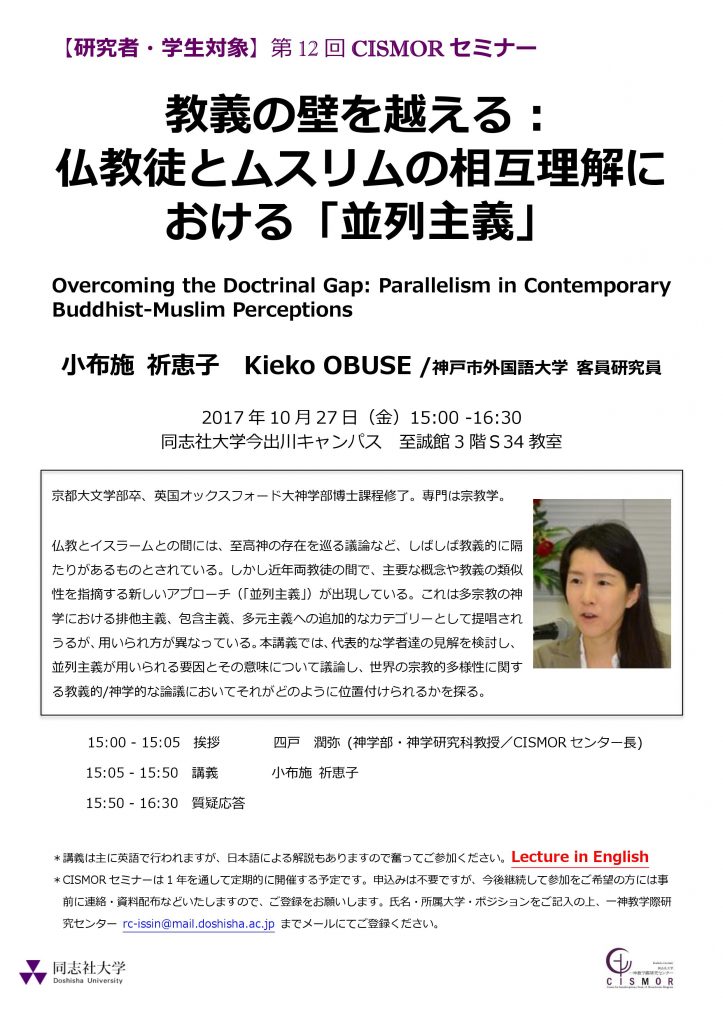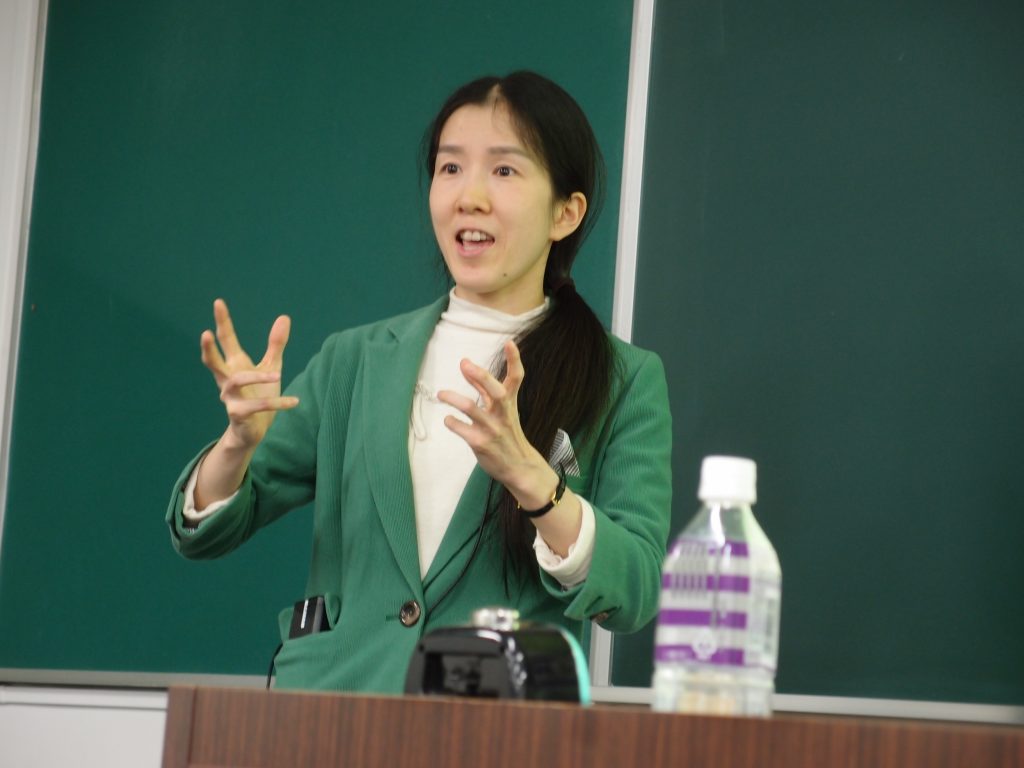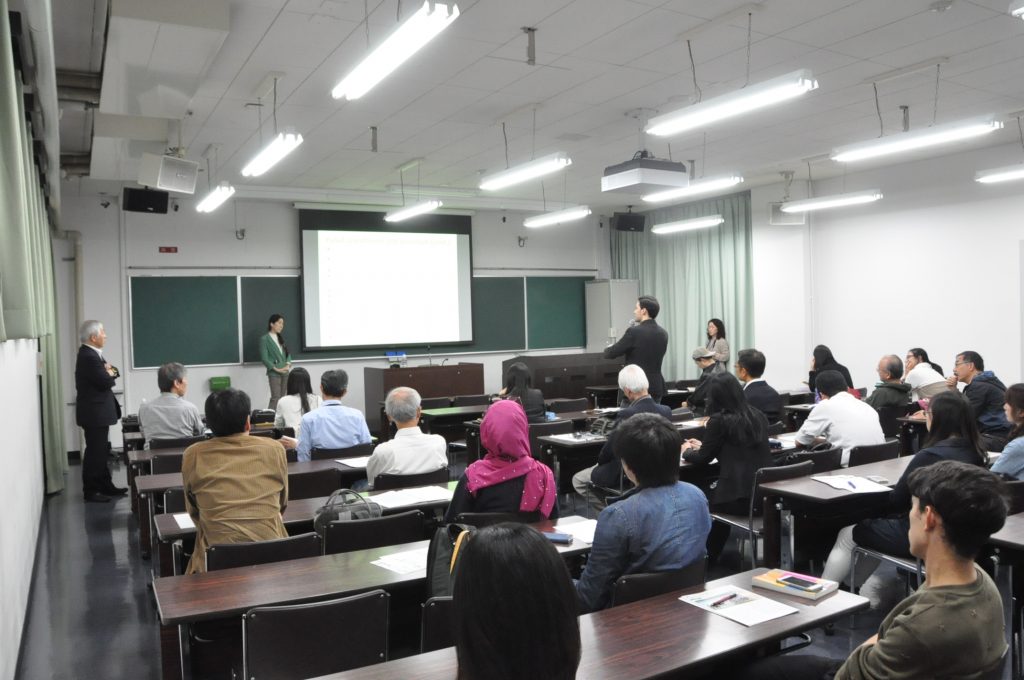Center for Interdisciplinary Study of Monotheistic Religions(CISMOR)Doshisha University
> CISMOR Seminar > “Overcoming the Doctrinal Gap: Parallelism in Contemporary Buddhist-Muslim Perceptions”CISMOR Seminar
CISMOR Seminar Series
“Overcoming the Doctrinal Gap: Parallelism in Contemporary Buddhist-Muslim Perceptions”
| Date: |
2017/10/27 15:00-16:30 |
|---|---|
| Place: | S34, Shiseikan bld., Imadegawa Campus, Doshisha University |
| Speaker: |
|
| Summary: | |
| Buddhism and Islam are often regarded as doctrinally remote. In particular, the purported absence of a highest god who creates and governs the universe in the Buddhist worldview has often been regarded as an obstacle to dialogue and mutual understanding between Buddhists and Muslims. However, there has emerged a new approach among Buddhist and Muslim scholars to relate to each other by drawing parallels between major concepts and doctrinal tenets of Buddhism and Islam. I call this approach ‘parallelism,’ which I have put forward as an additional category in the classical three-partite typology in the theology of religions, i.e. exclusivism, inclusivism, and pluralism. The representative writers with a parallelist view are Alexander Berzin, a Tibetan Buddhist teacher and scholar of Buddhism from the US; Rikyu Kono, a Jodo-shin Buddhist priest and scholar of comparative culture; and Imtiyaz Yusuf, a Muslim scholar of religion/Islam based in Thailand. Typically, parallelism is motivated by the writers’ wish to overcome the psychological gap between Buddhists and Muslims created by perceived doctrinal remoteness between the two traditions, and to provide bases for inter-religious dialogue and mutual understanding, thereby promoting harmonious relations between Buddhists and Muslims. What is furthermore notable about parallelism is that is not an exclusive category; someone who expresses a parallelist view in one occasion can elsewhere be found to express a pluralist or an inclusivist stance. This suggests that parallelism, rather than being a philosophical stance, serves a more practical, or even political, purpose. The present paper examines the views of the above-mentioned scholars, and discusses possible factors behind the parallelist approaches and their implications, exploring how parallelism can be situated vis-a-vis the doctrinal/theological discourse about the religious diversity of the world. | |


